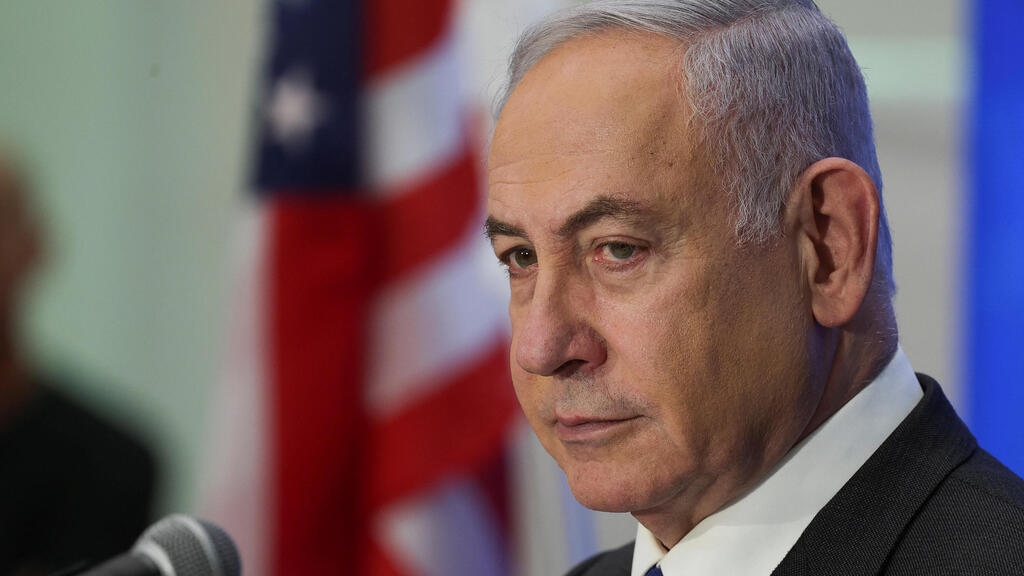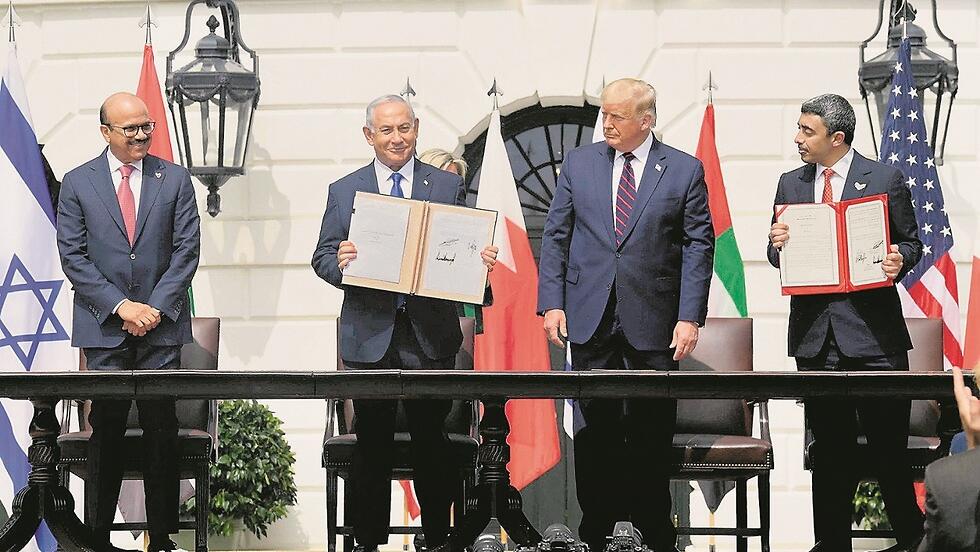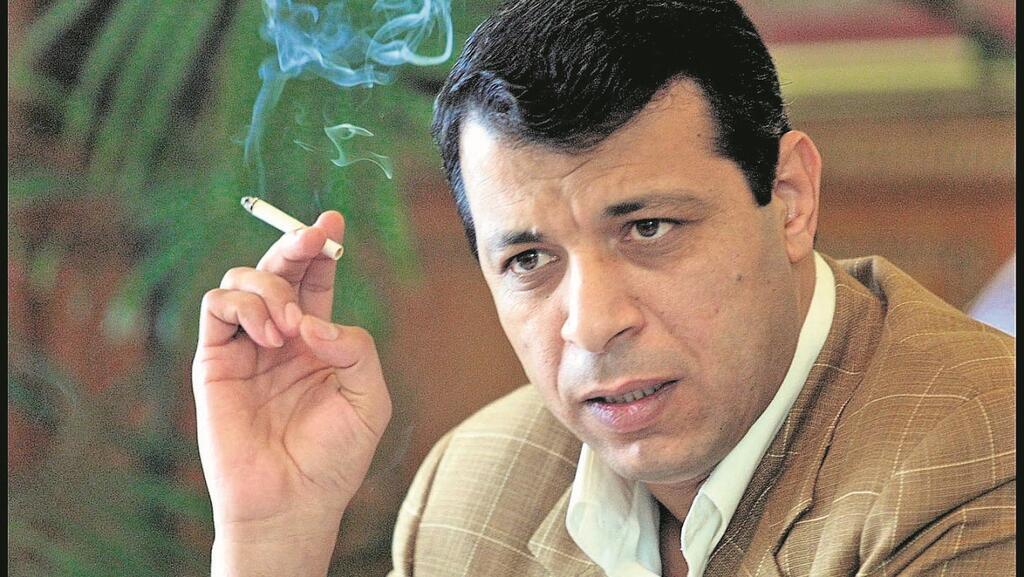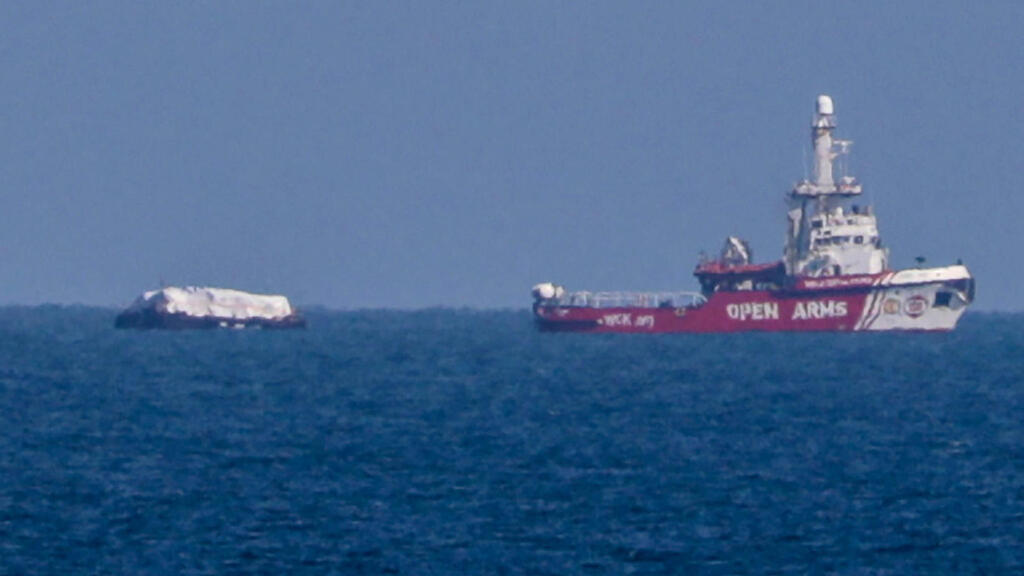Prime Minister Benjamin Netanyahu has a plan for Gaza after the war. He is keeping it to himself for now, out of concern about the reaction of the international community as well as members of his far-right coalition government.
Read more:
Although not entirely original and raised in the past by then-Prime Minister Shimon Peres, Netanyahu wants to see Gaza develop into an independent entity separated from Israel and the West Bank, its development funded by moderate Sunni nations, ultimately transforming it to a Middle Eastern Singapore. To detect the prime minister's plan, his allies in Israel and abroad must pay careful attention to what he has vehemently rejected.
In Netanyahu's vision, the demilitarized Gaza Strip would have an open path to the outside world via a land corridor in Egyptian territory, along the border with Gaza, and a sea corridor leading to Cyprus.
These corridors would enable Gazans to move freely in and out of the Strip, develop trade and economic relations with foreign lands, fish the waters offshore, all without moving through Israel. But Israel would maintain overall security control of the corridors to prevent weapons and the raw material to produce them from being smuggled into Gaza and enable the rebuilding of a terror infrastructure.
The administration of Gaza, including law enforcement, public services and tax collection, would be in the hands of local residents under the supervision of a council or body set up with international consent.
This body would be authorized by the UN Security Council or another regional authority recognized and approved by Israel. Netanyahu would like the United States, the UAE, Egypt, the UN and perhaps Bahrain to participate.
Those countries have an interest in the rehabilitation of Gaza, deep enough pockets to finance it and a shared desire to ensure the Strip remains demilitarized and terrorism there prevented, so that their investments do not fail. Qatar, a supporter of Hamas, may not fit the bill.
Netanyahu would very much like the representatives of the United States to take part, in order to ensure that regional partners stay the course and do not deviate from agreements with Israel. However, Jerusalem does not want any American boots on the ground in Gaza so as not to be blamed for any eventual military conflict that may cause the loss of American lives.
The prime minister hopes for Saudi involvement in his scheme although that would only be possible if and when U.S. President Joe Biden's vision for the region comes to fruition, an unlikely scenario without Israel agreeing to a two-state solution to end the Israel-Palestinian conflict.
Israel identified an interest in the UAE to play a significant role in the region, replacing Qatar as the predominate conduit to the Palestinians, in order to prove that the Abraham Accords signed with Israel are to the benefit of the entire Arab and Muslim world.
The UAE also has the financial means to invest in the rebuilding of Gaza. Israelis who visited Abu Dhabi recently said they could detect an intent to invest in lucrative tourism and high-tech projects. The model for such plans is the current tourism project underway on the Egyptian Mediterranean coast at Ras al-Hekma with an unprecedented $35 billion investment. Gaza could prove to be an even more profitable venture since it has a young, highly skilled and educated workforce.
The UAE is also home to Mohammed Dahlan, the former Fatah representative in Gaza, originally from Gaza, who now serves as an advisor to Mohamed bin Zayed. He is welcomed in Cairo as well.
This makes him an attractive candidate to head the civil administration of the Strip after the war, from the Israeli perspective, although he has publicly rejected such a possibility.
It is too early to consider Netanyahu's plan, not only because the war has not ended, but also because there would be blanket opposition to it in his government. It is no wonder the prime minister, who is keeping his cards close to his chest, is attempting to make moves that would advance his plans at a later stage.
The initiative of the UAE and World Central Kitchen (WCK) to deliver aid into Gaza through the sea, as opposed to the grand American plan to build a temporary port for the same purpose, can be seen as a trial run for the maritime corridor.
Dahlan, on behalf of the UAE, rented a barge sailing under a Spanish flag stocked with 180 tons of flour, meat and other foods as well as donated goods that left Larnaca last week.
Netanyahu's plans are expected to continue for at least 10 years. If it fulfils the hope of the prime minister, Israel would not oppose a change in the local leadership in Gaza in the more distant future, provided it meets four strategic objectives:
1. There will not be an independent Palestinian state made up of the West Bank and Gaza and connected by a land corridor above- or below-ground, which explains the broad rejection of the U.S. call for a role for the revamped Palestinian Authority in the Strip after the war.
2. Gaza would no longer pose a threat to Israel's sovereignty and security and would remain demilitarized and under the security control of Israel, with a secure zone along the border. The civilian administration would no longer educate young Palestinians to seek Israel's destruction.
3. Completely severing any connection with Israel in all civilian spheres so that any hardship in Gaza could not be blamed on Israel.
4. UNRWA must be dismantled, not only in Gaza, but in the West Bank and in neighboring Arab states as well, due to an understanding that preserving the Palestinians' refugee status and their economic dependence on the UN organization encourages resistance to Israel. UNRWA would be replaced first by international and regional humanitarian organizations, until a local civilian administration can be established to meet the needs of the local residents while under the supervision of regional or international partners.
The main opposition to Netanyahu's plan would be over his rejection of a future independent Palestinian state and the role of a new and improved PA in post-war Gaza. The prime minister is motivated by his ideology and not exclusively by political expediency.
Opposition from his far-right coalition partners would concentrate on severing any civilian ties between Gaza and Israel which would prevent settlements there, an option Netanyahu has said he opposes, and would prevent the transfer of Gazans out of the region.





